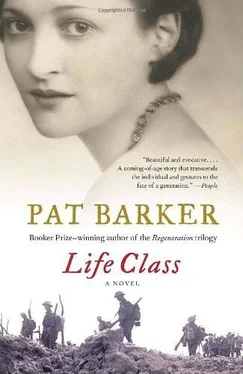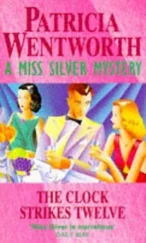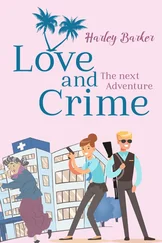The nurses in the far corner were still wide awake and chattering. All very young and fresh and pink-looking. Volunteers, she thought, not professionals. Professional nurses didn’t look like that. She found herself a couch close to them and sat down. No point undressing properly — they were due to dock before dawn, but she took off her hat, coat and boots and wrapped herself in the blanket provided. Pulling it tight up to her chin, she peered over it at her fellow passengers and knew at once that she wouldn’t be able to sleep. The lumpy figures in the sepia light; a woman’s face sagging with exhaustion as she twisted and turned on her folded-up coat; the chattering, innocent, ruthless girls screeching like jays; and the woman at the centre of the cabin who seemed to melt into her child, as if she were the wax that fed its guttering flame. There was just enough light to see. She propped the sketchpad against her knee and worked steadily for an hour, screening the page so that anybody glancing casually across at her would think she was writing a letter. Only when she felt she’d exhausted the possibilities did she put the pad away.
Still sleep wouldn’t come. She thought about Paul and what might be going to happen. In London she’d come close to sleeping with him, but in the end she’d drawn back. It seemed such a ridiculous way to take such a decision, because the night was warm and dry and wherever you looked there were couples twined round each other, some of them actually making love on the grass. So easy to let herself be swept along, but it would have felt as if the war had taken the decision for her. So in the end, no, she’d pulled back and they’d gone to their single beds alone.
But her imagination had been busy ever since.
Her only worry was that she hadn’t told Kit she was coming and he was stationed at a hospital just five kilometres outside the town. But Paul hadn’t seen Kit in all the weeks he’d been there, so it wasn’t very likely she’d bump into him. She couldn’t consult Paul about it because Paul didn’t know she was still writing to Kit. Neither of them knew how close she was to the other. If only she could bring herself to tell the truth, it was always better in the end, but short-term, the lies were so convenient. Toby said she’d begun by lying to Mother, because that was the only way she could have a life of her own, but now she lied reflexly pointlessly to absolutely everybody. Including herself.
She closed her eyes. The smell of tar and talcum power in the hot dark was making her queasy. The ship shifted and rose beneath her. Oh God, don’t let me be sick was her last conscious thought before she slept.
Next morning she woke with a crick in her neck. She forced herself to sit up on the edge of the shiny leather couch; her mouth tasted foul, her eyelids seemed to be glued together. It was like a hangover, though she’d had nothing the night before except a small cup of black coffee. She grabbed her washbag and joined the queue for the bathroom, standing in line behind two middle-aged women who were complaining loudly about the behaviour of the nurses last night. When she finally got a place at the basins her face looked small and white and sick. She washed in cold water, brushed her teeth, combed her hair, straightened her clothes as best she could and was ready to go ashore.
Back in the ladies’ cabin, they were all completing their packing, stuffing articles of clothing into bulging bags and checking under the benches for lost possessions. That curious, dislocated atmosphere you get in travelling when a small fragile community fragments. Elinor got away as fast as she could and stood looking out over the harbour, where a light breeze pimpled the surface of the water.
Once on shore she began to feel better, though even on the short crossing her feet seemed to have forgotten where the ground was. She discovered that the nurses too were bound for the railway station and, since there was a spare seat in the second cab, she was invited to join them. A small, ginger-haired girl with red-rimmed eyes asked which hospital she was going to and she gave the name of Paul’s hospital. It seemed to mean no more to them than it did to her, but they accepted it without comment and that encouraged her. Several of them had brothers who’d joined up, one or two of them sweethearts, and so of course they had to do their bit too. It was all represented as duty and patriotism, but even after an almost sleepless night, their eyes were still shining with excitement. Elinor produced a neatly matching story. Yes, she had a brother who’d joined up, and yes, a sweetheart too. Oddly enough it was Kit’s face that flashed into her mind at this point, though he hadn’t joined up exactly and he certainly wasn’t a sweetheart. Before all this, she’d been an art student, she said, but of course now …
Everybody agreed. Yes, of course, now.
Elinor was left wondering why, when her story was accurate in almost every respect, it should be so far from the truth. The difference, she decided, was that these girls needed the war and she didn’t. The freedom they were experiencing on this trip to Belgium she experienced every morning as she walked into the Slade. Though some people might say — and Ruthie was one of them — that she was simply too selfish to set aside her personal concerns and make some contribution to the common cause. Well, yes. She was selfish. She needed to be. She intended to summon up as much selfishness as she possibly could.
At the station they all went for a coffee together. The café was a long narrow room with dingy lino on the floor. A phlegmatic-looking woman stood behind a counter flanked by glass shelves lined with curly sandwiches. One of the nurses tried out her French; the woman replied in English with a look of dull contempt. Elinor got her coffee and croissants and was walking carefully back to their table when the door burst open and the room filled with soldiers.
Instantly they took possession of the place, laughing and joking and punching each other playfully in the chest. They were ushered to the tables, where they caught the eye of the little waitress and flirted with her, winking, nudging, egging each other on. So much prime male beef, so much muscle under their uniforms, thighs like tree trunks lolling apart, so much fresh sweat, so many open red-lipped mouths. The whole world belonged to them because they were on their way to die.
Elinor kept her nose in her coffee cup as much as possible, looking, she knew, old-maidish in her felt hat and shapeless coat. She hated the way the women in the queue deferred, accepting that now they must wait longer to be served. She forced a croissant down with gulps of hot coffee and was glad to get on the train.
For the last part of the journey she had a lump of fear in her throat, though the worst that could happen was that she would be refused entry. Nobody was likely to think she was a spy and bang her up in gaol, and even if they did, a call to the British Consulate would surely put things right. Only, she dreaded having to face her father, whose comments on this reckless and — as he would see it — self-indulgent excursion she could easily imagine.
As if to spite her, the train crawled along, sometimes stopping altogether. Rain-drenched fields. Reflections of grey-white cloud drifting slowly across flooded furrows. She tried to imagine this land churned up by wheels and horses’ hooves and marching feet, but she couldn’t. And why should I? she thought, hardening again, when this was the reality. Grass, trees, pools full of reflected sky, somewhere in the distance a curlew calling. This is what will be left when all the armies have fought and bled and marched away.
The nurses had gone quiet. Even their high spirits couldn’t be sustained indefinitely, and perhaps, like Elinor, they’d started to feel nervous. Finally, the train crawled into the station, burped apologetically, once or twice, like a drunken husband arriving home late, and fell silent. There was a moment when nobody said or did anything, then the red-haired girl jumped to her feet and got her bag from the overhead rack.
Читать дальше












